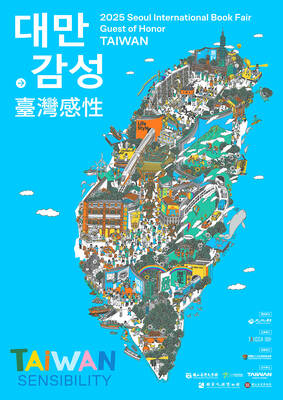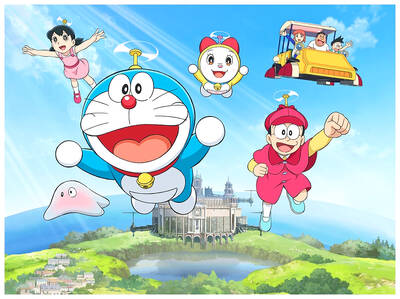1. 我們最小的女兒瑪麗成為一個聰明勇敢的女子。
ˇ Mary, our youngest daughter, grew into an intelligent and brave woman.
χ Mary, our youngest daughter, she grew into an intelligent and brave woman.

Photo: Adobe Stock l 照片:Adobe Stock
註:主詞重疊在中文裏偶或出現,如:「瑪麗…她…」,但英語中每個句子只能有一個主詞,因此Mary... she...不符英文習慣。
2. 是殖民者來美洲破壞了美洲印地安人的文化。
ˇ It was the colonists that came to America and destroyed the American Indians’ civilization.

Photo: Adobe Stock l 照片:Adobe Stock
χ It was the colonists came to America and destroyed the American Indians’ civilization.
註:強調句中的主詞、受詞或副詞最常用的方法是改成It is ... that ...的結構。強調部分,放在It is之後,其餘的部分放在that之後。若是將that省略則不合文法,因該句將多出一個動詞。縱使It is之後的名詞是人,最好還是用that,不要用 who。
ˇ It was my uncle that brought us this happy life.
(強調 My uncle brought us this happy life. 句中的主詞。)
χ It was after independence that we led a happy life.
(強調 We led a happy life after independence. 句中的副詞。)
3. 我那天買的微波爐花了我一千六百塊錢。
ˇ The microwave oven that I bought the other day cost me sixteen hundred dollars.
χ The microwave oven that I bought the other day it cost me sixteen hundred dollars.
註:關係代名詞that在句中有雙重作用,即連接主要及從屬句,本身又在從屬句中兼作主詞或受詞。因此從屬句中出現的it是多餘的,應該刪去。句中的關係代名詞that在口語中通常省略。
4. 他動手打她,因此感到愧疚。
ˇ He was ashamed that he had hit her.
ˇ He was ashamed to have hit her.
ˇ He was ashamed of hitting (/having hit) her.
χ He was ashamed of that he had hit her.
註:to be ashamed of後面跟名詞,或用what引導的從屬句,如:He is ashamed of what he has done.;不能直接跟用that引導的從屬句,應刪去of,或變換句子的結構,例如:
He is ashamed that he has made such a mistake.
He is ashamed of the mistake he made.
5. 起初我發覺他所說的很難懂。
ˇ At first I found it very difficult to understand what he said.
χ At first I found very difficult to understand what he said.
註:當複合受詞中第一部分不是名詞或代名詞而是不定詞、動名詞或從屬句時,通常要用it代替,把這不定詞、動名詞或從屬句放在句尾。這裏it代替不定詞片語to understand what he said。
Exercises
A. 是我的妻子為我們帶來了快樂的生活。
It was my wife __________ brought us this happy life.
1. who 2. whom 3. which 4. that
B. 我發覺攀爬這座小山很困難。
I __________ to climb the hill.
1. found very difficult 2. found it very difficult
3. found that very difficult 4. found its very difficult
Answers: A. 4 B. 2
文章由書林出版公司提供:
www.bookman.com.tw
蘇正隆 — 台灣翻譯學學會前理事長、師大翻譯研究所兼任副教授; 編著《走讀自然.花言樹語》,《英語的對與錯》,《世紀病毒:必讀防疫英文知識與詞彙》...等。國家教育研究院中英雙語詞彙審議委員;研究領域為翻譯、術語及詞典編譯,從事植物與人文導覽數十年,亦曾應邀遠赴國外大學做植物人文導覽。

The 2025 Seoul International Book Fair was held from June 18 to 22 at the COEX Convention & Exhibition Center in Seoul, South Korea. This year, participants from 17 countries attended, with over 530 publishing houses and related organizations taking part. For the first time, Taiwan participated in the book fair as the Guest of Honor, bringing together more than 85 publishers and presenting a curated selection of 550 titles. A delegation of 23 Taiwanese creatives traveled to Seoul to attend the event, including 13 literary authors, six illustrators, and four comic book artists, among which were a film director, an

A: What exhibitions are you going to see this summer? B: The 100% Doraemon & Friends exhibit is set to open on June 28. A: The news says there will be a 12-meter-tall giant Doraemon model at the Huashan 1914 Creative Park. B: The One Piece Carnival will set sail on the same day. A: And the D’festa Taipei 2025 – featuring exclusive content from K-pop supergroups such as BTS, NCT and Twice – is also set to begin next Friday. Isn’t that cool? A: 今年夏天還有什麼展覽可看啊? B: 「100%哆啦A夢 & Friends特展」即將在6月28日開幕。 A: 新聞說在華山1914文創園區會場,還有12米高的巨型哆啦A夢呢! B: 航海王「One Piece歡樂派對嘉年華」也將在同日啟航。 A:

The new generation born between 2025 and 2039 has been officially named “Generation Beta,” or simply “Gen Beta.” This generation will be the first to experience a world where artificial intelligence (AI) plays a key role in daily life. Generations are defined by shared cultural, social and historical experiences within a specific time frame. These experiences, often influenced by significant events and technological advancements, shape the values, attitudes and behaviors of each generation. The concept of generations helps us understand how different age groups interact with their environment and contribute to societal changes over time. The previous generational transition from Gen

Continued from yesterday(延續自昨日) https://www.taipeitimes.com/News/lang As Gen Beta grows, they are expected to witness advanced technologies becoming fully integrated into various fields like education, workplaces, healthcare and entertainment. In addition to technological developments, they will also face big challenges like severe climate change. Influenced by their Gen Y or Gen Z parents, who view climate change as a critical issue for the future and prioritize sustainability, they are likely to focus more on global issues and seek innovative solutions to address them. Moreover, Gen Beta will experience considerable demographic changes, such as lower birth rates and longer lifespans. Consequently, Gen Beta is predicted to